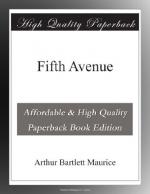Dickens was not the only British author of those days to kindle the flames of American resentment. Almost all who came to our shores seemed to possess the faculty of “getting a rise” out of Yankee sensibilities. Captain Marryat was one of the offenders. At a dinner in Toronto he gave an injudicious toast. Thereupon the town of Lewistown, Maine, built a huge bonfire on the shore directly opposite Queenstown and destroyed all the “Midshipman Easys,” “Peter Simples,” “Japhets,” and “Jacob Faithfuls” that could be obtained. Hone commented sensibly on the affair in his Diary for May 5, 1838. “Captain Marryat, I dare say, made a fool of himself (not a very difficult task, I should judge, from what I have seen of him); but the Lewistownians have beaten him all to smash, as the Kentuckians say. How mortified he must have been to hear that his books had been burned after they were paid for!” A year before Marryat had dined at the Hone house in New York and the host wrote: “The lion, Captain Marryat, is no great things of a lion, after all. In truth, the author of ‘Peter Simple’ and ‘Jacob Faithful’ is a very every-day sort of a man. He carries about him in his manner and conversation more of the sailor than the author, has nothing student-like in his appearance, and savours more of the binnacle lamp than of the study.” And again, six months after the Lewistown flare-up: “It would have been better for both parties if the sailor author had been known on this side of the Atlantic only by his writings ... he has evidently not enjoyed the benefits of refined society, or intercourse with people of literary talents.”
The Knickerbocker Pepys grew mellower as he advanced in years. There is a marked change in the tone of the Diary dating from the very time when he himself suffered financial reverses. It was the test of the man that misfortune did not embitter him, but made him more kindly in his judgments of those about him. The smug self-satisfaction belonged to the early days. In the closing years of his useful life there was but one thing that disturbed him greatly. He foresaw the Deluge that was to come. December 12, 1850, was his last Thanksgiving. He wrote: “The annual time-honoured Thanksgiving-day throughout the state. No nation, ancient or modern, ever had more causes for thanksgiving, and reasons to praise the Author of all good, than the people of the United States. Yet there are many, at the present time, ignorant and unworthy of the blessings they enjoy, who would throw all things into confusion, break up the blessed Union which binds the States, and should bind the individuals forming their population; who would destroy the harmony, and condemn the obligations, of Constitution and law. Factionists, traitors, madmen—the Lord preserve us from the unholy influence of such principles!”
CHAPTER IV
Glimpses of the Sixties




